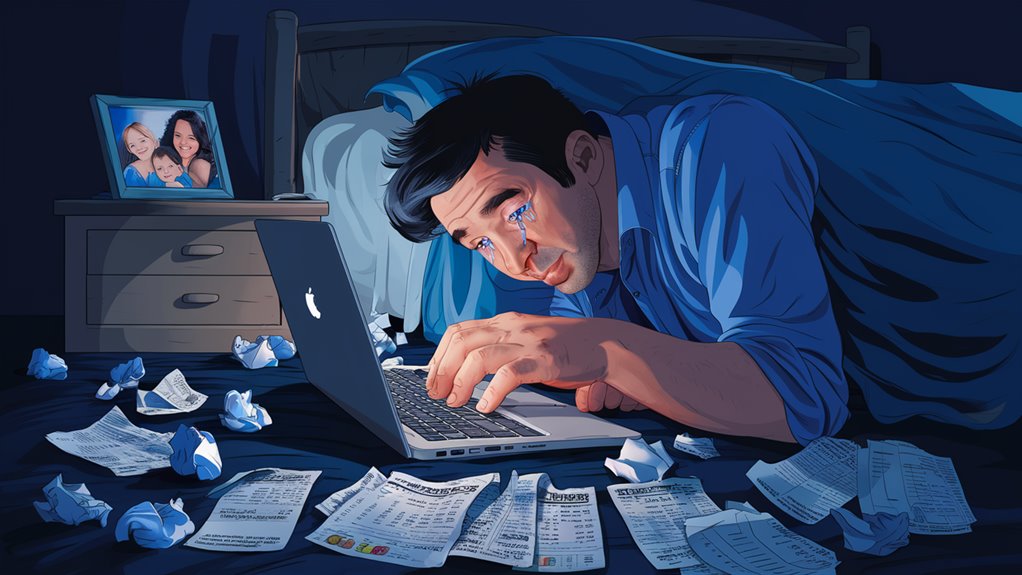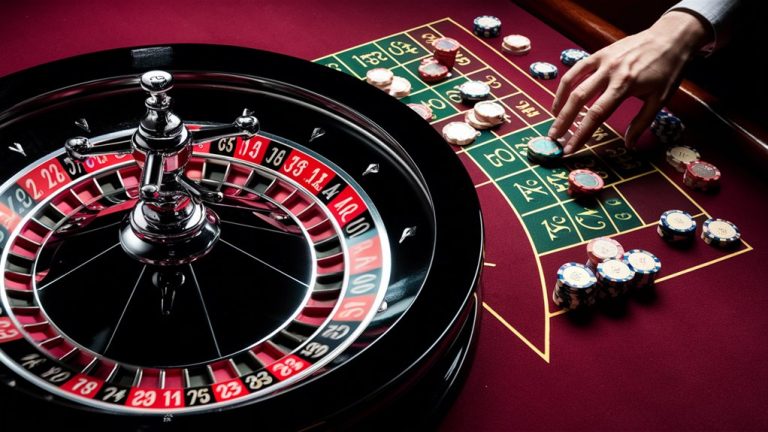
Why People Hide Their Gambling Losses

Why It Stays a Secret
Problem gamblers often hide their losses because they fear what others will think and worry about hurting their loved ones. Cultural norms, family pride, and what their faith group thinks make it hard to tell the truth about their gambling 상세 자료 비교해보기 issues. Feelings of deep shame keep them silent, making hiding feel like the only choice.
Job and Money Worries
Hiding money trouble comes from real worries about jobs and money views. Gamblers fear that if people knew about their losses, it could ruin their job, hurt their chances at loans, and block future money chances. As losses grow, they hide their situation more.
The Trap of Trying to Win It Back
The hope of winning back losses before anyone finds out often leads to more risky choices. This dangerous path makes gamblers bet more as they fall deeper into keeping it a secret. Trying to fix their money issues in secret only makes things worse.
The Strain on Close Bonds
Family ties and close bonds suffer a lot from secret gambling habits. Not wanting to let down loved ones makes many keep up big lies. These hidden troubles put stress on marriages, parent-kid bonds, and friendships, often causing them to pull away from people close to them.
Breaking the Cycle
Understanding these deep reasons shows why problem gambling stays hidden for so long. The mix of shame, fear, and hope for fixing things on their own creates strong blocks that stop many from getting help until things explode.
The Fear of Being Judged
Problem gambling suffers from big social shame. This often makes people hide their gambling losses as most see it as a personal failure not a real issue. Being judged pushes those with problems to keep them under wraps. The job effect can be big, with gambling troubles threatening career moves and work relationships.
Culture and Faith
Being judged gets worse with cultural and faith views that see gambling as wrong or reckless. Many groups have strict no-gambling rules, forcing people to hide their struggles to keep family and community respect. This fear of judgment stops many from looking for professional help, afraid of the social fall-out.
Alone in the Digital Age
Online gambling offers new ways to keep addiction secret, but this often leads to harmful alone time. Problem gamblers who hide their troubles often cut off important support networks and help, hurting their chances to get better. This digital shield, while feels safe, makes overcoming gambling troubles harder.
Keeping Relationships Safe
Problem gamblers face a tough choice: keep close relationships safe or deal with their addiction. The need to keep family bonds and close ties often makes people hide their money issues. These steps, meant to keep relationship peace, start complex feelings between the gambler and their loved ones.
Why Relationship Hiding Happens
Recovering from gambling gets harder when people try to protect their close bonds from their losses. Many hide their money troubles just to stop hurting their families. This protective act comes from a deep fear of messing up their marriage or parent-kid ties by letting their gambling secrets out.
The Cost of Secrets
Studies show that the long-term effects of hiding gambling losses are often worse than just money troubles. When hidden gambling gets out, the lost trust can break strong family ties. This dangerous path, meant to protect relationships through secrets, often breaks them instead. The combined hit of money loss and lost trust leads to major relationship damage that’s hard to fix.
The Shame Spiral
Deep shame and self-hate are at the heart of the harmful cycle of gambling addiction. Problem gamblers feel sick with themselves after big losses, leading to more hiding by denying and making it seem less than it is.
The Shame Cycle
The link between shame and addiction makes a tough cycle in gambling habits. Feeling bad after losing leads to more gambling as they try to gain back control and self-respect. Each loss makes shame worse, making it harder to admit the problem. Studies show this often turns into deep sadness, big worry, and thinking of hurting themselves.
Shame and Society
The shame people feel is made worse by how society sees gambling troubles. This deep shame stops many from getting the help they need, as they don’t want to face the social fallout. Seeing shame as a sign of the addiction, not a personal fail, is key to breaking this hurtful cycle.
Getting Better
- Get help from gambling experts
- Talk therapy to work through shame
- Join support groups to share and heal
- Family therapy to fix broken ties
- Money advice for practical help
Starting to heal begins with seeing treatment as a needed step, not a judgment.
Not Seeing the Problem

Denial is a strong block that stops problem gamblers from seeing how serious their addiction is. This pattern lets them keep up harmful gambling while they downplay or make excuses for growing money troubles.
Common Denial Signs
Problem gamblers often deny their issues:
- Thinking they’re just having fun
- Saying they can stop anytime
- Only remembering wins
- Blaming losses on others
- Making complex betting plans
Understanding Denial
Research shows that denial in gambling is much like in drug issues. This denial works through tricky self-tricks:
- Twisted thinking about gambling outcomes
- Downplaying bad results
- Making excuses to keep gambling
- Avoiding facing their money truth
Denial’s Effect on Getting Better
Strong denial puts up big walls to recovery. Key issues are:
- Late seeing of gambling issues
- Not wanting to get help
- Big risk of harsh money outcomes
- Long road of addictive behaviors
This deep denial often lasts until a big personal or money crisis hits, making early help key for better results.
The Money Name Game
Financial reputation is key for success in work and life now. Many hide gambling losses because they worry about how it would look. Being open about gambling money troubles can affect everything from moving up at work to personal ties.
Work and Money Risks
Money trust matters a lot at work, especially in fields like:
- Banking and money management
- Business leading
- Keeping track of accounts
- Investing and handling securities
When gambling money issues come out, it’s hard for workers to keep moving up. Bosses and work friends often see these losses as signs of bad decision-making.
The Modern Money World
In our linked-up work world, money news travels fast through:
- Work circles
- Online spots
- Industry lists
- Credit score keepers
This makes keeping your money name clean hard, pushing many to keep tight lids on their gambling money issues.
Long Money Effects
Money handlers and others can put blocks on you if your gambling comes out:
- Less loan chances
- Pay more interest
- Fewer work chances
- Hard to move up
- Trouble renting
These hits can last long after the gambling stops, touching your money health and work growth.
Money Across Cultures
How we see money changes a lot around the world, shaping how we deal with gambling losses. In the West, self-worth and doing well with money are tied tight, making you want to look like you’re doing okay.
Keeping Money Secrets
How we handle money privacy affects how we deal with losses. Places that value keeping money details quiet see more hiding of losses. This is clear in spots that stress standing on your own with money, where asking for money help is looked down on.
Places with close family money ties, like in the Mediterranean and Latin America, feel more pressure when money problems from gambling pop up.
Beliefs and Social Rules
What we believe and social rules add more layers to handling gambling losses. Places with strong no-gambling views see a lot of hiding, with people keeping up looks of doing okay while they deal with big debts. These crossings of culture and belief shape how we act and how groups respond to money issues from gambling.
Money Actions
- Keep social spot
- Save family honor
- Look good in the community
- Hold onto family money dreams
- Dodge cultural shame
Hope in Money Healing
Pathological gamblers keep hoping to fix their money troubles despite growing losses, seeing each bet as a way out. This mind set-up shows in clear actions that keep the gambling going.
Chasing the Fix
Trying to Win Back Losses
Problem gamblers often try to chase lost money, betting more in hopes to get back what they lost. This often leads to bigger money troubles.
The “Just One More” Thinking
The “just one more” idea is key in gambling addiction, with people betting even when it hurts their wallet. They believe the next bet will fix everything. The Impact of Advertising on Gambling Behavior
The Never-Ending Cycle
Wanting to fix money issues makes a hard mind set that keeps bad gambling going. This leads to:
- Hiding losses from family
- Making excuses to keep gambling
- Seeing gambling as not that bad
- Putting off getting help because they hope to fix it first
These mind tricks keep people stuck in bad gambling habits, making it hard to stop without outside help.





